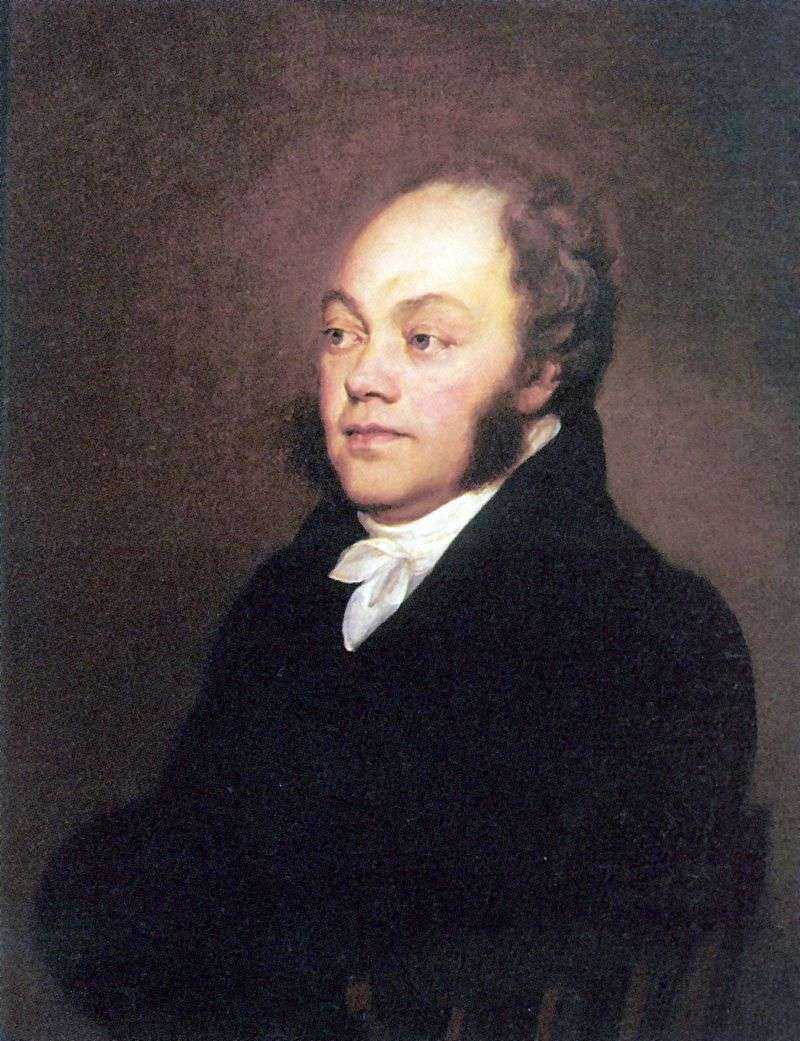
Count Fedor Vasilyevich Rostopchin is a famous Russian statesman. From the age of 10 he was a member of the Life Guards Regiment of the Preobrazhensky Regiment; in 1792 he received the title of chamber-cadet, “in the rank of foreman”. In 1786 – 1788 years. He traveled abroad and listened to lectures at the University of Leipzig; in 1788 participated in the assault of Ochakov; in 1791 he traveled with AA Bezborodko to Turkey for peace talks. Under Catherine II, he did not occupy a high post, but amazingly quickly rose under Paul I; for three years he was made cabinet-minister for foreign affairs, third in the Foreign Affairs Collegium, Count of the Russian Empire, the Grand Chancellor of the Order of St. John of Jerusalem, the director of the postal department, the first-present at the college of foreign affairs and, finally, the member of the council of the emperor.
From 1801 to 1810, Rastopchin lived in Moscow in retirement; in 1810, he was appointed Ober-Chamberlain, and two years later, renamed General of Infantry – commander-in-chief in Moscow. Many contributed to the recruitment and outfitting of 80,000 volunteers; induced noblemen and merchants to donate; supported the people’s cheerfulness and confidence, referring to him with his famous posters or ads written in the common language, very vividly and aptly. He tried to expose the French in a contemptuous manner, praised “simple Russian virtues,” exaggerated the news of the victories of our troops, denied rumors about the successes of the enemy invasion. Partly with the intention of hiding the truth, partly because of ignorance of Kutuzov’s true plans,
When, after the battle of Borodino and the council in Fili, Moscow had to be cleansed, Rostopchin did much to transport state property and residents, but at the same time contributed much to the extermination of Moscow by fire, not wanting it to be left untouched by the French. Living, during Napoleon’s stay in Moscow, then in Vladimir, then in with. Red Pakhra, he raised peasants against the French with his messages.
After the departure of Napoleon, he did much to organize the capital and its inhabitants. August 30, 1814 he was dismissed from the rank of Commander-in-Chief and appointed member of the State Council, but lived mostly in Paris and only in 1823 he settled in Moscow. Historians very differently assess his actions at the post of commander-in-chief: some believe that he tried to organize the defense of Moscow, others accuse him of poor organization of evacuation of citizens and blame him for fires in Moscow.
Mocked against Rostopchin, Napoleon called him an arsonist and a madman; contemporaries said that “there are two minds in it, Russian and French, and one harms the other.” He wrote to himself: “Your heart is straight, your mind is stubborn, you are really good at it.” Undoubtedly, Rostopchin was an intelligent man, well aware of the weaknesses of his passion for all French in the then Russian society and saw the shortcomings of Alexander I’s policy after 1815; but at the same time he was an extreme conservative and zealous defender of serfdom, often resorted to violent, little apologetic measures, was passionate and vindictive
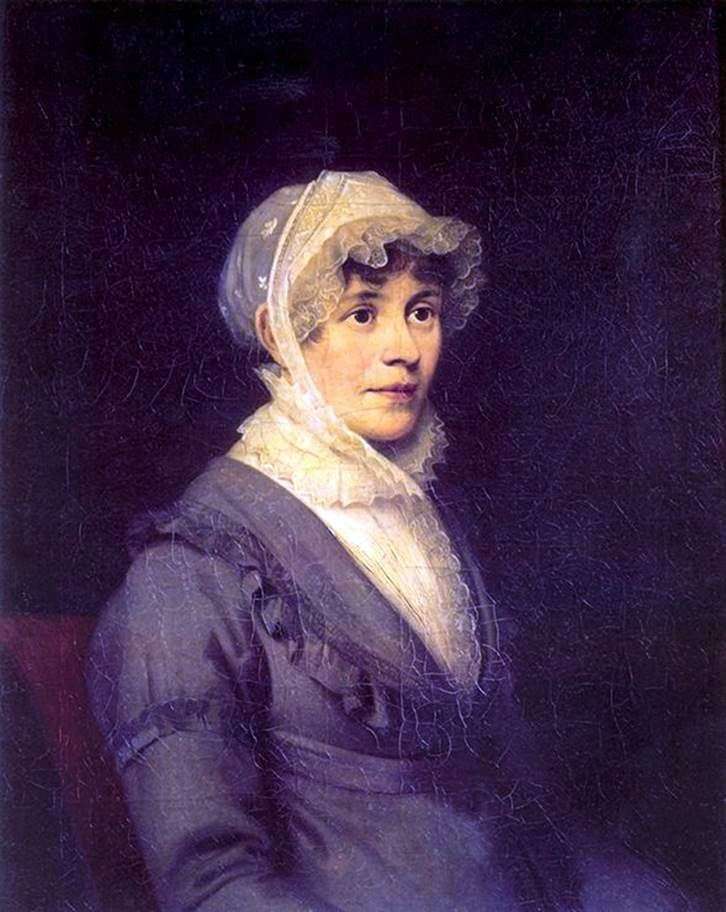 Portrait of E. P. Rastopchina by Orest of Kiprensky
Portrait of E. P. Rastopchina by Orest of Kiprensky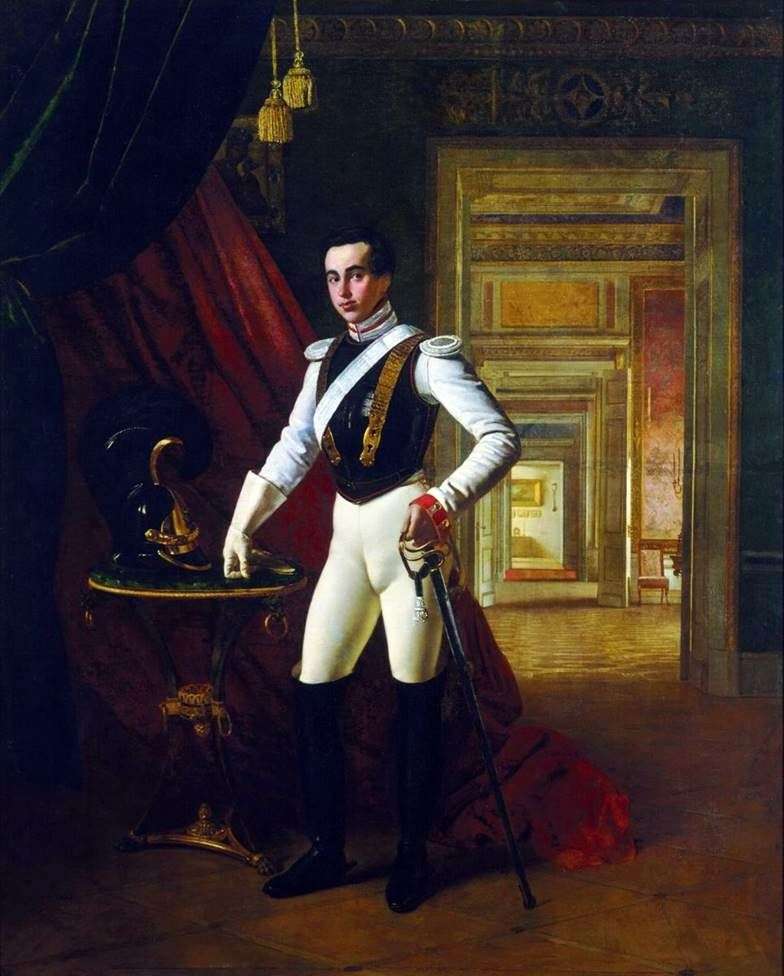 Portrait of Count N. Sheremetev by Orest of Kiprensky
Portrait of Count N. Sheremetev by Orest of Kiprensky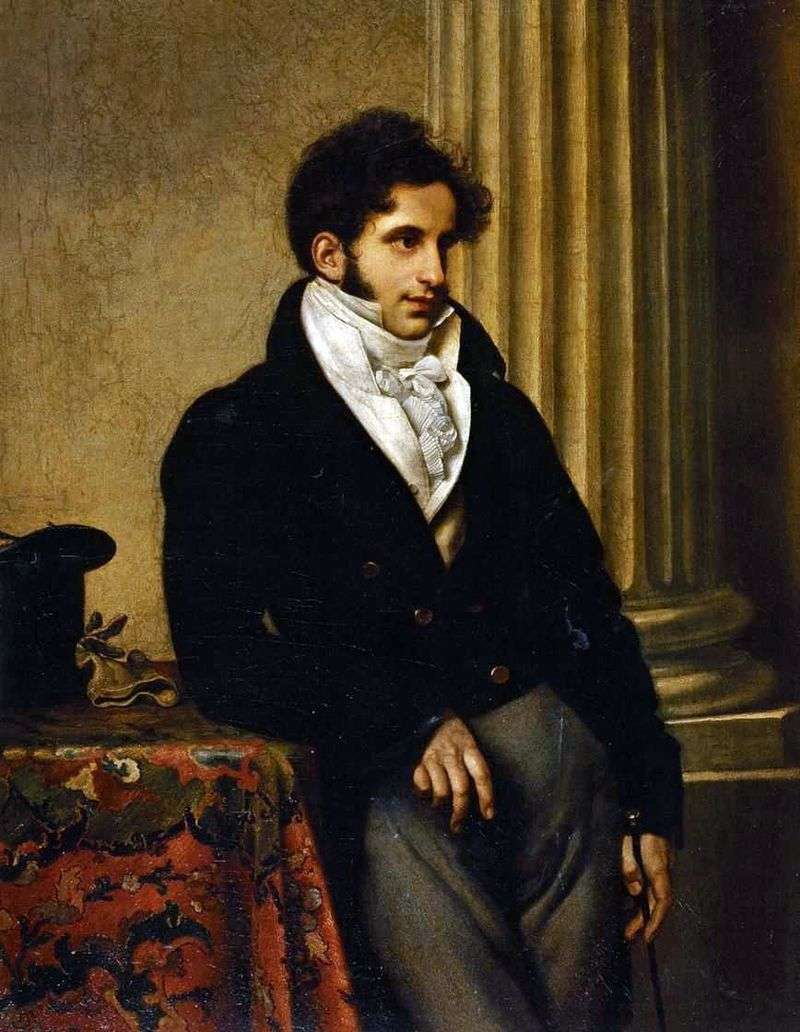 Portrait of SS Uvarov by Orest of Kiprensky
Portrait of SS Uvarov by Orest of Kiprensky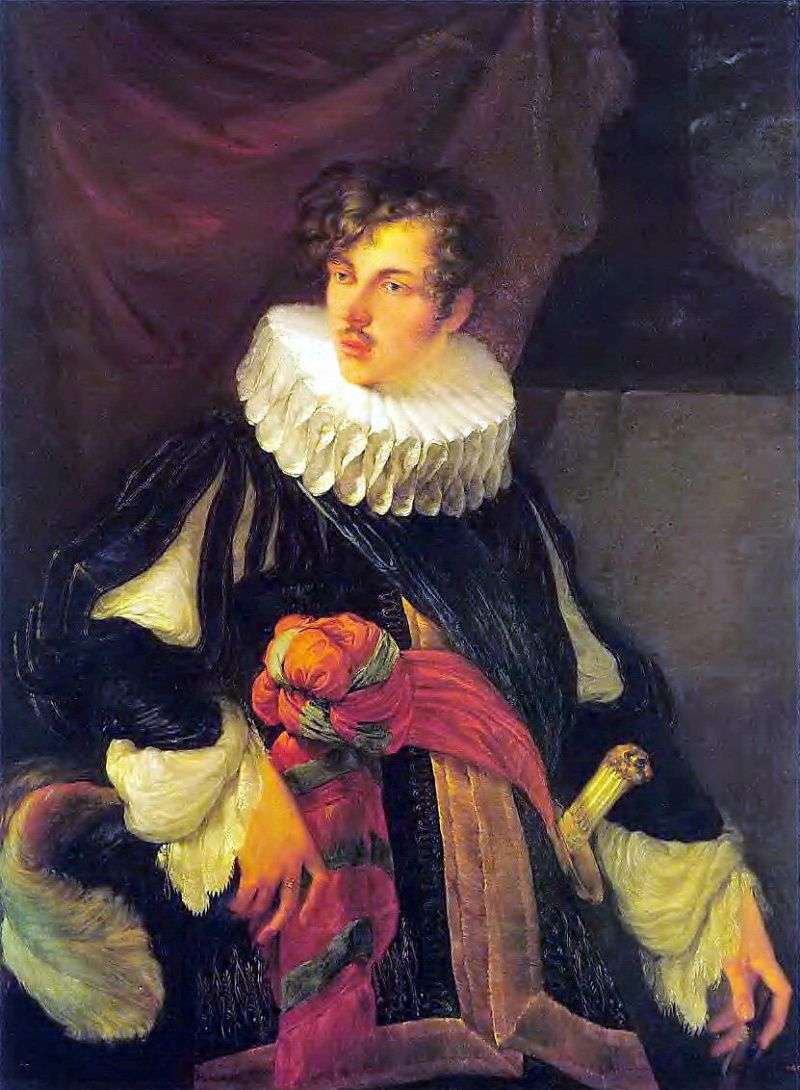 Portrait of V. A. Perovsky in the Spanish costume of the XVII century by Orest Kiprensky
Portrait of V. A. Perovsky in the Spanish costume of the XVII century by Orest Kiprensky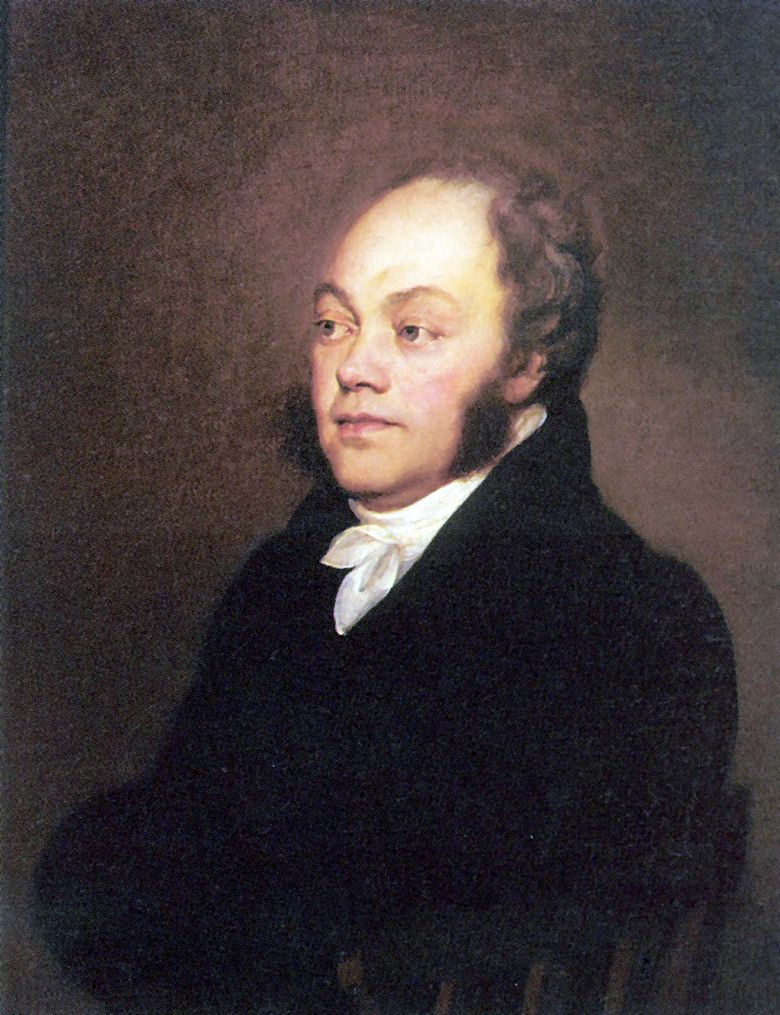 Portrait de F. V. Rastopchin – Orest Kiprensky
Portrait de F. V. Rastopchin – Orest Kiprensky Portrait of A. I. Musin-Pushkin by Johann Baptist Lampi
Portrait of A. I. Musin-Pushkin by Johann Baptist Lampi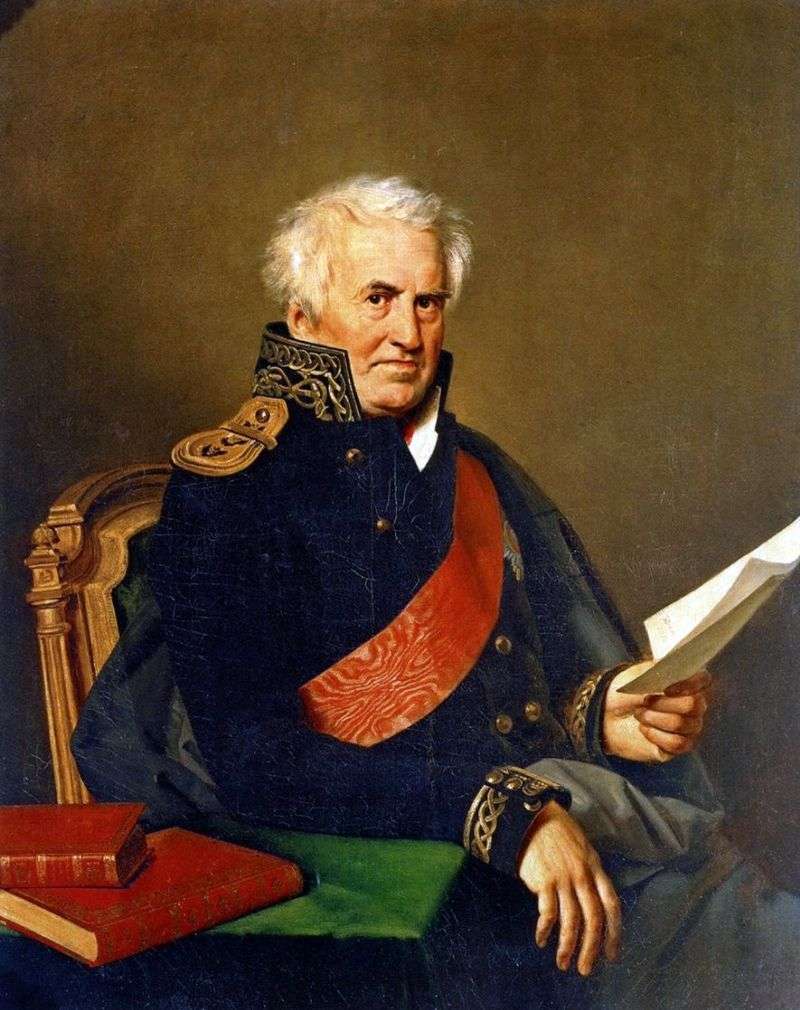 Portrait of Alexander Shishkov by Orest of Kiprensky
Portrait of Alexander Shishkov by Orest of Kiprensky